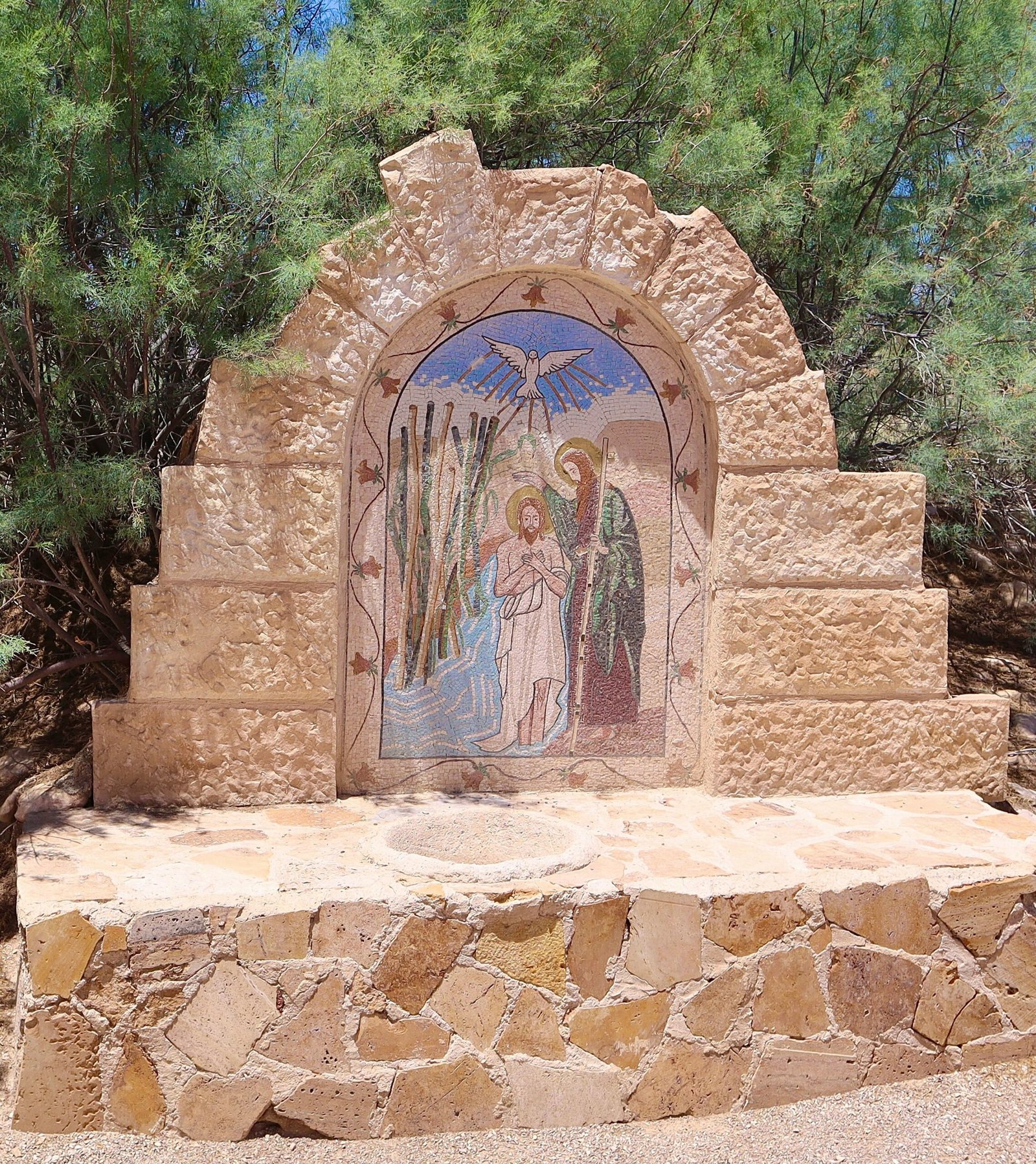
By F. Luis Casasus, General Superior of idente missionaries
Commentary on the Sunday Gospel of 2-7.2017, Thirteenth Sunday in Ordinary Time (2nd Book of Kings 4:8-11.14-16a; Letter to the Romans 6:3-4.8-11; St. Matthew 10:37-42)
Whoever loses his life for my sake will find it… but this is an immediate effect! The prolific author Tertullian notes that when the pagan judges would persuade Christians to renounce their faith, the terms they commonly used were: Save your life; Do not throw your life away.
But spiritual life follows a different logic: a Christian named Probius who lived in the Roman Empire circa 250 AD. Probius was whipped until the blood flowed, then laden with chains and thrown into prison. A few days later, he was brought out and commanded to sacrifice to the pagan gods. He knew that he would be tortured and killed if he refused. Still he courageously said: I come better prepared than before, for what I have suffered has only strengthened me in my resolution. Employ your whole power upon me, and you shall find that neither you, nor the Emperor, not the gods you serve, nor even the devil, who is your father, shall compel me to worship idols. Probius was sent back to further tortures and eventual death by the sword.
He literally lost his biological life and saw his spiritual life was strengthened with a very special grace. This is what Jesus announced for the first disciples and for us all. Perhaps not all of us are called to give our own life with martyrdom, but with the abnegation of our ego. This abnegation is a true crown of ascetical life, which is more than the removal of vices.
Some religious are convinced that the Holy Spirit will not come if the Mass is celebrated at 10.30am rather than at 10.00am. This is not a joke; this is attachment to my judgments, slavery and servitude to my ego. Quite often, much as we try to remain objective, we are also motivated by our interests and hindered by our insecurity and anxiety, thus creating barriers between us and our neighbor.
To be human also means to have the ability to laugh at oneself. While science has discovered the presence of sense of humor in many species, it is probably only the human being that can laugh at one’s own follies. Abnegation of the ego is a human virtue that is shown to us by Nature through this ability. Of course, most of the time abnegation is very demanding, but ultimately is based on our true nature; this is why Christ wants to lift us to the whole perfection making use and purifying this essential element of our soul.
The greatest difference between the abnegation requested by Christ and the worldly (although commendable) abnegation is expressed in His words: follow after me. We cannot with some of our infinite forms of solitude and individualism: Cast all your anxiety on Him because he cares for you (1Pe 5:7). Maybe the following story of a young monk will be useful both for ascetics and rectors:
When I was young I had this experience. I had a passion in my soul which mastered me. Having heard it said that Abba Zeno had healed many, I wanted to go find him and open myself to him. But the devil prevented me from doing so, saying, “Since you know what you must do, conduct yourself according to what you have read. Why go and scandalize the old man?”
Each time that I was ready to go to him, the warfare in me abated a little, and I didn’t go. And when I had given up the idea of going to see the old man, once more the passion would assail me. I would begin to fight in order to leave, and the enemy would deceive me by the same trick and wouldn’t let me open myself to the old man. Often I would actually go to the old man in order to tell him everything, but the enemy would not let me speak by putting shame in my heart and saying to me, “Since you know how to heal yourself, what is the point of speaking about it? You’re not giving yourself enough credit: you know what the fathers have taught.” Such is what the adversary suggested to me so that I wouldn’t reveal my sickness to the physician and be healed.
The old man knew very well that I was having these thoughts, but he didn’t intervene, waiting for me to make them known to him myself. He taught me about the right path and sent me on my way.
Finally, afflicted and in tears, I said to my soul, “How long, unhappy soul, will you persist in not wanting to be healed? People who live far away come to the old man and are healed; aren’t you ashamed, when you live so close to the healer, of not making the effort yourself?” My heart on fire, I got up and said to myself, “I’m going to see the old man, and if I don’t find any visitors there, I’ll know that it is the will of God that I make my thought known to him.”
I went and found no other person there. The old man, as was his custom, gave me some teaching about the salvation of the soul and the ways of cleansing oneself of impure thoughts. But once more I was ashamed, and I didn’t open up. I asked him for his blessing.
The old man got up, said a prayer, and led me to the door. He walked ahead of me, and meanwhile I was tormented by my thoughts. Would I speak to the old man, or wouldn’t I? I walked a little behind him without his paying me any attention. He put his hand to the door to open it for me, but when he saw me tormented by my thoughts, he turned towards me, tapped me on the chest, and said: “What is the matter with you? Am I not a man, too?” (Acts 10:26).
When the old man said this to me, I thought that he had uncovered my heart. I prostrated myself at his feet begging him with tears, saying, “Have pity on me.” He said to me: “What is the matter with you?” I told him, “You know what it is, what is the use of saying it?” He said to me, “It is you who must say what is the matter with you.”
Covered with shame, I made known to him my passion, and he said to me: “Am I not a man too? Do you want me to tell you what I know? That you’ve been coming here for three years with these thoughts and you haven’t let them out.” I prostrated myself, begged him and said, “For the Lord’s sake, have pity on me.” He said to me, “Go, do not neglect your prayer, and do not speak ill of anyone.” I returned to my cell, and did not neglect my prayer; and by the grace of Christ and by the prayers of the old man, I was bothered no longer by that passion.
This story touches on many key themes: the illusion of self-sufficiency and self-discernment; the power of embarrassment and shame; the patience and humility of the spiritual director; the need to take the hard step of saying aloud the secrets of the heart; the spiritual sensitivity of the monk shown more in his long term prayer than in the actual advice he gave after the manifestation of conscience.
Moreover, in the first reading we see how the holy prophet Elisha asked Gehazi: Can something be done for Shunem? (The woman who offered him her hospitality) It is important to remember that Gehazi was a corrupt, wicked and dishonest servant of Elisha; this is another example of how a true disciple can trust in God, despite our personal imperfections and the limitations of our fellowmen.
In the case of a priest, the power of the Holy Spirit guarantees the sacraments so that even the sin of the minister cannot impede the fruit of grace.
Whoever loves father or mother more than me is not worthy of me, and whoever loves son or daughter more than me is not worthy of me. This statement of Jesus is tough and disturbing, but even more so the Luke’s version: If anyone comes to me and does not hate father and mother, wife and children, brothers and sisters -yes, even their own life- such a person cannot be my disciple. According to the Bible scholars, there is not a problem of translation: when Jesus says hate…He means hate.
Of course, it is not that we have to experience hatred “for a person”, for our beloved ones, but we have to hate the love we profess them. This is not the love of Jesus, but always an uncomplete and conditional love. This mystical hate is a fruit of our acceptance of the Purification accomplished in our lives by the Holy Spirit. Our Father Founder tells us about the abhorrence to ourselves, a manifestation of this deep hate which we all experience, mainly when we are aware of the graces we have missed, more than the sins we certainly commit.
Jesus bluntly declares: Do not suppose that My mission on earth is to spread peace. My mission is to spread, not peace, but division (Mt 10:34). As a parent separates two fighting children, putting them into separate rooms, so Jesus may need to “separate” families in order to mysteriously bring His peace. Also, these separations have unquestionable testimonial value: there have to be factions among you in order that [also] those who are approved among you may become known (1Cor 11: 19).
The sword of division divides mankind into the rejectors and the welcomers of the Gospel and the disciples who bring it. And whoever gives only a cup of cold water to one of these little ones will surely not lose his reward.
Am I really supportive of the initiatives, the apostolic works of my brothers, old and young, physically near or far? Most of us are not and perhaps we have a “perfect” justification: I already have enough to do on my regular job.
Hospitality is one of the marks of the idente charism. We all are pilgrims and dependent on the kindness of one another: Be hospitable to one another without complaint (1 Pe 4:9).
Baptism implies death to sin; the death of the old man…to stay dead to sin after Baptism, personal effort is called for. Saint Paul summarized this effort saying that he had been crucified with Christ; an accurate description of how we have to imitate Jesus with our ascetical struggle.
The Cross is the Way and therefore the Church makes the Via Crucis (Way of the Cross). Suffering and death take on new meaning and purpose: they redeem and overcome. Unless a grain of wheat falls into the earth and dies, it remains just a single grain; but if it dies, it produces much fruit (Jn 12:24).
We also have the opportunity to be crucified with Jesus, like Dismas, the “good thief”: He cries out for mercy, and he feels that he has earned his crucifixion, he acknowledges his wrongdoings, he has a fear of God and shares it with the other man hanging, and he seems to fully expect to spend eternity in Hell; all he asks if that Jesus might not forget him. Jesus answers his cry with mercy, not condemnation. Not a bad example of humility and joyful hope for us, as penitents in community. For some good reason, our Father Founder said that our “full name” is Idente Missionaries of Christ Crucified.
Also, it is worth noting how the Servant of God Paul VI expressed the purificative power we possess and the sign of complete offering that we can give God every time we embrace our daily cross:
In a mysterious way, Christ Himself accepts death … on the cross, in order to eradicate from man’s heart the sins of self-sufficiency and to manifest to the Father a complete filial obedience.










